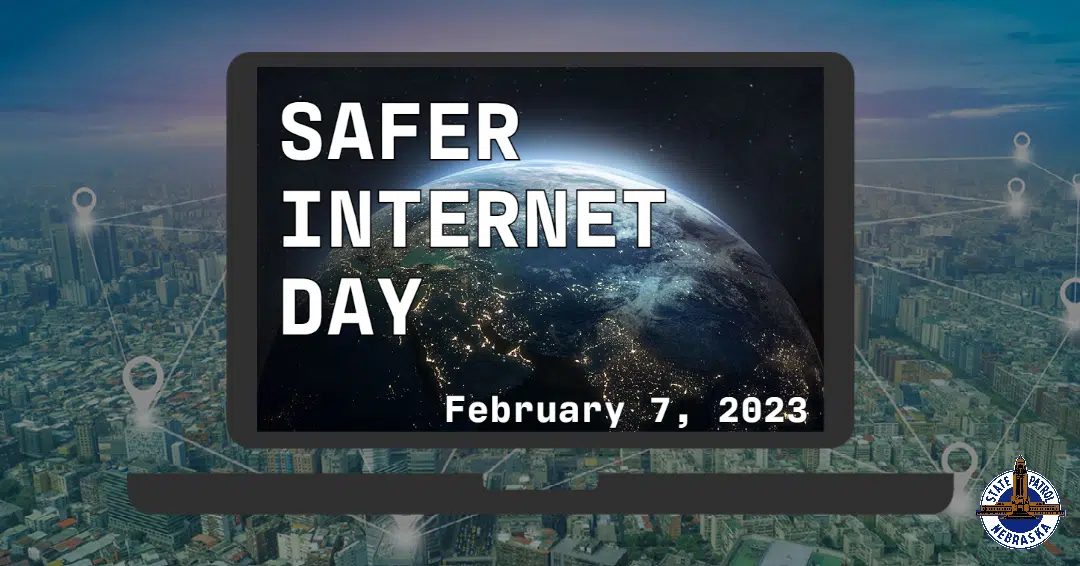Feb. 7 marks Safer Internet Day, which is a chance to draw attention to the potential dangers that lurk in the more sinister areas of the Internet. This year’s focus is on financial ‘sextortion,’ which is when a perpetrator extorts money from a victim following an online interaction of a sexual nature. Monty Lovelace, Commander of the Nebraska State Patrol’s Tech Crimes division, told KLIN News how this works.
“In many cases, we are finding that bad actors from Nigeria or the Ivory Coast are actually disrobing first, making it seem like a legitimate exchange going on between them and the victim, and it makes the victim vulnerable.
They become trusting, and then they disrobe and expose themselves. A video or a picture is captured, and then suddenly, the conversation turns to the outright extortion, where they state, ‘If you don’t provide us $1,500, we’re going to share your image with your friends and family.’
As you can imagine, this will panic anyone, let alone a child.”
Lovelace says there’s potential for further damage as the victim, who is often adolescent, may seek to discreetly procure their parents’ credit or debit card in order to make a payment. But paying such crooks is the wrong thing to do.
“Stop communication altogether,” said Lovelace. “If you’re in a situation, and you make a bad decision and this happened, we’re telling people to shut off the phone, block the individual, go tell a trusted adult and walk away. The repercussions of further communication will be far worse than simply walking away and simply risking the image to get shared with family and friends. ”
Lovelace adds that while it does happen that an image or video is shared with a victim’s inner circle, more often than not, there is no consequence. This is because these perpetrators are after money and are more likely to immediately pursue their next victim rather than spend their time punishing someone who doesn’t pay up.
So, where does this activity come from and what can be done in the aftermath? Social media is the biggest culprit today. The Tech Crimes division has seen a lot of abuse through Kik, Snapchat, Facebook, and Instagram. They’ve received tips from the National Center for Missing and Exploited Children come in from TikTok and Omegle, a platform that specifically puts strangers in a one-on-one conversation.
Anyone who finds themselves in a situation of extortion can take their case to their local law authority or the NSP Tech Crimes division. That said, since so much of this activity takes place with suspects who are out of the country, it can be difficult for State-side offices to do anything about it. The best course of action to take is one of prevention. Don’t share personal information online or anything that can make you look vulnerable, such as your personal feelings. Anything personal about yourself can be used to exploit you. Always know to whom you are speaking first.
But on Safer Internet Day, it’s important to understand how crucial it is to speak to your children about safe Internet usage. Communication between adolescents and trusted adults is the single best way to prevent dangerous encounters online. Lovelace tells KLIN News that when kids let their parents know what kind of social applications they’re on and aren’t secretive about their online activity, they typically don’t see many problems occur.
“Where we have seen cases of victimization is when a parent doesn’t audit their child’s phone or a child starts to sneak around, maybe gets an alternative phone or gets an application that hides certain things on their phone,” said Lovelace.
“We just encourage parents and children to keep that level of communication high.”
I am text block. Click edit button to change this text. Lorem ipsum dolor sit amet, consectetur adipiscing elit. Ut elit tellus, luctus nec ullamcorper mattis, pulvinar dapibus leo.







